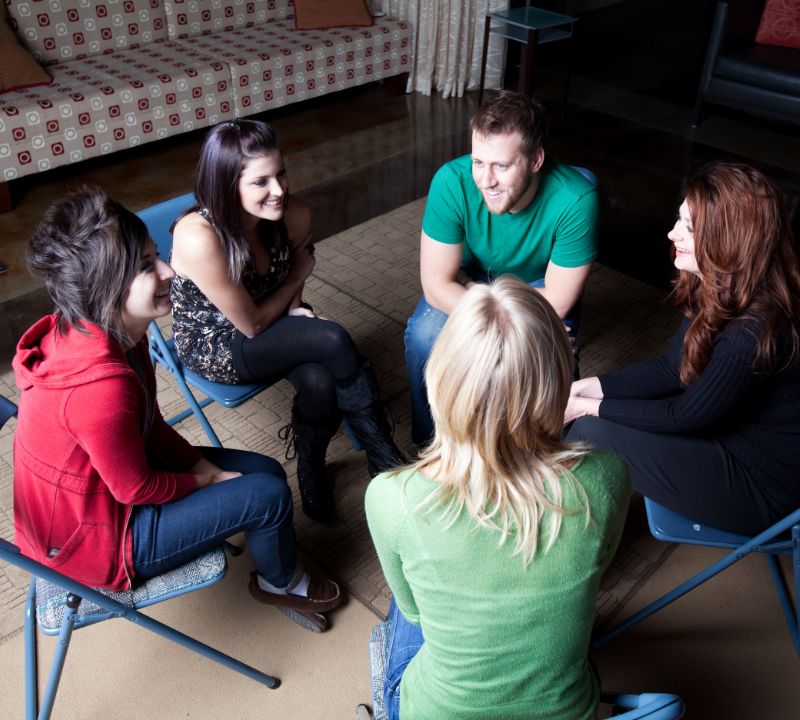Aftercare That Keeps You Moving Forward

Drug and Alcohol Rehab Aftercare
After completing rehab, you might wonder about the next steps, and that’s where aftercare comes into play. It’s essential for maintaining sobriety, as it helps you manage triggers and provides ongoing emotional support. You’ll find that aftercare offers various programs, from support groups to vocational training, all designed to promote accountability and skill development. But how exactly do these programs foster long-term recovery success? Let’s explore this vital phase of your journey.

Understanding the Importance of Aftercare
While completing a rehabilitation program is a significant milestone, it’s just the beginning of a lifelong journey toward recovery.
You might wonder why aftercare is essential. The benefits of aftercare include sustained sobriety, relapse prevention, and continued emotional support. These are vital as they help reinforce the coping strategies you’ve learned during treatment.
However, aftercare also presents challenges. Adjusting to daily life without the structured environment of rehab can be intimidating. You may encounter triggers that test your resilience. It’s important to recognize these challenges and seek support when needed.
Engaging in aftercare can bridge the gap between treatment and independent living, providing you with a safety net as you navigate the complexities of maintaining sobriety in the real world.
Types of Aftercare Programs Available
After completing a rehabilitation program, you’ll find a variety of aftercare programs designed to support your ongoing recovery journey.
Sober living environments offer structured, substance-free housing to help you shift smoothly back into everyday life.
Outpatient programs provide continued clinical support while allowing you to maintain daily responsibilities.
Transitional housing offers a temporary living space, fostering stability.
Vocational training and educational workshops enhance your skills and open new professional pathways.
Holistic therapies, such as meditation and yoga, nurture mental and physical well-being.
Life skills training empowers you to manage daily challenges effectively.
Community engagement and mentorship opportunities connect you with others who share similar experiences.
Finally, recreational activities introduce healthy, enjoyable pastimes, reinforcing a positive lifestyle.
The Role of Support Groups
Support groups play an essential role in sustaining long-term recovery by providing a sense of community and shared understanding. Engaging in support group dynamics fosters an environment where you can openly share experiences and challenges.
This shared space allows you to gain insights from others who’ve faced similar struggles, enhancing your coping strategies. The peer support benefits are profound; you’ll receive encouragement from individuals who genuinely understand your journey, reducing feelings of isolation.
Such interaction builds a network of trust and accountability, vital for maintaining sobriety. Participation in these groups strengthens your emotional resilience and helps reinforce positive behavioral changes.
Counseling and Therapy Options
Counseling and therapy options are essential components of aftercare at Windows of Discovery, offering personalized strategies to support sustained recovery.
Through individual therapy, you’ll explore personal triggers and develop coping mechanisms. Group therapy provides a community for shared experiences and collective healing.
Cognitive behavioral techniques are employed to reshape negative thought patterns, while holistic approaches and art therapy foster emotional expression and balance. Mindfulness practices enhance self-awareness and resilience, vital for long-term sobriety.
Family therapy aims to mend relationships and build a supportive environment. Understanding past traumas through trauma-informed care aids in healing.
Relapse counseling offers insights to prevent setbacks. Skills training equips you with tools to face everyday challenges confidently, ensuring a thorough recovery journey.
Building a Relapse Prevention Plan
Crafting a robust relapse prevention plan is essential in maintaining long-term sobriety, providing you with the tools to recognize and manage potential triggers.
Begin by setting clear, achievable goals that align with your recovery journey. Goal setting empowers you to track progress and stay motivated.
Identify your high-risk situations and develop personalized coping strategies to address them effectively. These strategies might include mindfulness techniques, cognitive-behavioral approaches, or engaging in healthy activities that foster resilience.
It’s vital to remain vigilant in monitoring your emotional and mental state, recognizing signs of stress or cravings early on. By actively managing your responses, you can mitigate the risk of relapse.
The Impact of Family Involvement
When family involvement is integrated into the recovery process, the chances of sustained sobriety greatly increase. Family dynamics play a vital role in either supporting or hindering your recovery journey.
By fostering positive communication skills, families can create an environment conducive to healing and growth. It’s essential to address any dysfunctional patterns that may exist, as these can impede progress if left unchecked.
Engaging in family therapy sessions allows for open dialogue, helping you and your loved ones understand each other better and rebuild trust. Involving family members in aftercare programs equips them with tools to support your ongoing recovery.
They’ll learn to set healthy boundaries, provide emotional support, and recognize signs of relapse, ensuring a more robust support system.
Navigating Triggers and Stressors
Although triggers and stressors are a natural part of life, they can pose significant challenges in the recovery process. Recognizing and understanding your personal triggers is vital for effective trigger management.
Triggers often manifest as emotional, social, or environmental cues, and they can lead to cravings or relapse. It’s important to develop strategies for stress reduction, such as mindfulness or cognitive-behavioral techniques, to maintain stability.
By identifying high-risk situations and employing coping mechanisms, you can build resilience. Establishing a support network and engaging in therapy can further bolster your efforts.
Developing Healthy Lifestyle Habits
Adopting healthy lifestyle habits is a cornerstone of successful recovery, enhancing both physical and mental well-being. Establishing healthy routines can be transformative, providing structure and stability.
Your journey includes embracing positive thinking, which mitigates negative thought patterns and promotes resilience. Here are four essential habits to incorporate into your daily life:
- Regular Exercise: Engage in physical activity to reduce stress and improve mood through endorphin release.
- Balanced Nutrition: Opt for a diet rich in nutrients to support your body’s healing process and cognitive function.
- Mindfulness Practices: Integrate meditation or yoga to enhance self-awareness and emotional regulation.
- Sleep Hygiene: Prioritize consistent sleep patterns to restore energy and cognitive clarity.
These habits foster a holistic recovery approach, empowering you to thrive.
Monitoring Progress and Accountability
Effective progress monitoring and accountability are pivotal components of sustained recovery, ensuring that you remain on track and identify areas needing improvement. Engaging in progress tracking allows you to meticulously document your journey, highlighting both achievements and setbacks. This clinical approach provides critical insights, enabling you to tailor interventions that enhance your recovery trajectory.
Having accountability partners is equally essential. These individuals, who might be peers or mentors, offer compassionate support while holding you responsible for your commitments. Such partnerships foster a sense of shared purpose and resilience, reducing the risk of relapse.
Resources for Long-term Sobriety Success
When starting on the journey to long-term sobriety, having access to the right resources can make all the difference in maintaining your recovery.
Embracing sober living environments and honing essential life skills are pivotal for your sustained success. Here are some critical resources:
- Sober Living Homes: These provide a structured, supportive environment that encourages a substance-free lifestyle while you integrate back into society.
- Life Skills Workshops: Enhance your ability to manage daily responsibilities, including financial planning, job searching, and interpersonal communication.
- Support Groups: Joining groups like AA or NA offers peer support and shared experiences, fostering a sense of community and accountability.
- Professional Counseling: Ongoing therapy can help address underlying issues and reinforce coping strategies, ensuring emotional and psychological resilience.
Frequently Asked Questions
How Long Should I Stay in an Aftercare Program?
You’ll want to contemplate the aftercare duration based on your unique needs.
There’s no one-size-fits-all answer, as program flexibility allows you to tailor your journey. Typically, experts suggest a minimum of 90 days, but longer engagement can enhance sustained recovery.
It’s essential to evaluate your progress and adjust as needed.
Can I Switch Aftercare Programs if It’s Not Working for Me?
Absolutely, you can switch aftercare programs if it’s not working for you.
Exploring various aftercare options is vital, and program flexibility is often necessary for effective recovery.
By evaluating different approaches, you can tailor your support to meet your unique needs.
Remember, it’s important to find a program that resonates with you and promotes long-term well-being.
Trust your instincts and seek guidance from professionals who understand your journey.
What if I Don’t Have a Strong Support System at Home?
If you lack a strong support system at home, focus on self-care strategies and building connections.
Engage in activities that enhance your well-being, like meditation or journaling. Attend local support groups or community events to meet others with similar experiences.
Establishing a network can provide encouragement and accountability.
Are Online Support Groups as Effective as In-Person Ones?
You might wonder if online support groups offer the same effectiveness as in-person meetings.
Virtual connections can be highly beneficial, allowing you to access support from anywhere, fostering peer engagement and shared experiences.
While some find face-to-face interactions more personal, many report feeling equally supported through digital means.
Clinical studies suggest that the key lies in active participation and the quality of interactions, rather than the medium itself.
How Can I Balance Aftercare With Work or School Commitments?
Balancing aftercare with work or school commitments requires effective time management strategies and prioritizing self-care.
You can start by scheduling specific times for aftercare activities, ensuring they don’t clash with other obligations. Use tools like planners or digital calendars to track commitments.
It’s vital to communicate your needs with employers or educators, fostering an understanding environment.
